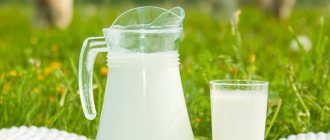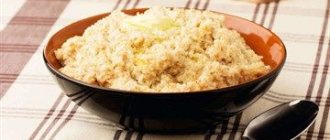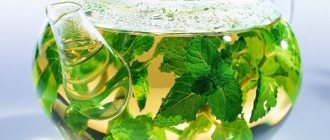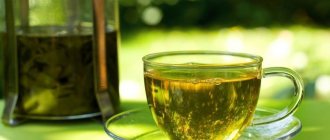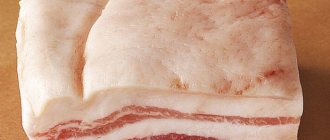Dairy products must be included in the diet of a nursing mother. When breastfeeding, already in the first weeks after birth you can eat cottage cheese, sour cream and natural yoghurts. However, it is important to choose products with low fat content and without additives. It’s good if the milk is prepared at home.
A little later, you can introduce kefir into the menu, but you should be more careful with cow's milk. The drink contains cow protein, which is a strong allergen.
Beneficial features
During lactation, sour cream will be a good separate dish and a delicious dressing for dishes. It will perfectly replace mayonnaise and other sauces that are contraindicated during breastfeeding. At the same time, it performs a number of important functions in the body:
- Strengthens the immune system;
- Relieves nervous stress and fatigue, helps with stress;
- Restores the body;
- Improves digestion and improves bowel function;
- Prevents obesity;
- Normalizes the functioning of the heart and blood vessels;
- Prevents bone fragility;
- Improves the condition of skin, hair and nails
The product contains a large number of elements that contribute to the normal growth and development of an infant. In addition, sour cream has a beneficial effect on a woman’s body and helps to recover faster after childbirth. It charges with vivacity and energy, gives strength and helps to cope with fatigue. By the way, sour cream is used not only as a food product, but also as a cosmetic product as a face and hair mask.
Why does a nursing mother want sweets?
Sweet foods contain large amounts of carbohydrates.
They help produce the hormone serotonin, which is responsible for restoring energy and raising tone. The hormone of joy, endorphin, is also produced by glucose. The lack of these hormones leads to fatigue, lack of mood, insomnia, apathy, and stress. Sweets during breastfeeding are an “outlet” for mothers. Sweet foods activate the production of endorphins and serotonin. And they, in turn, help you feel a surge of strength.
Compound
| Element | Beneficial features | Contents of 100 grams of sour cream |
| Vitamin A (retinol) | Positively affects vision, renews skin cells, promotes hair growth and prevents hair loss | 107 mcg |
| Vitamin B1 (thiamine) | Restores strength and strengthens the immune system, regulates metabolism, stimulates mental activity and relieves stress | 0.03 mg |
| Vitamin B2 (riboflavin) | Increases visual acuity and adaptation to darkness, has a beneficial effect on the functioning of nerve cells, relieves nervous tension and stress | 0.1 mg |
| Vitamin B4 (choline) | Normalizes the functioning of the nervous system, increases the level of intelligence, restores liver tissue and removes toxins, regulates fat metabolism | 124 mg |
| Vitamin B5 (pantothenic acid) | Stabilizes the activity of the heart and blood vessels, burns fat and promotes weight loss, helps with arthritis and colitis, alleviates allergic conditions | 0.3 mg |
| Vitamin B6 (pyridoxine) | Stimulates brain function and improves memory, regulates blood glucose levels, increases performance, and prevents heart attacks. | 70 mcg |
| Vitamin C (ascorbic acid) | Strengthens the immune system and resists colds, promotes skin regeneration, ensures hematopoiesis | 0.4 mg |
| Vitamin E (tocopherol) | Promotes wound healing and normal hematopoiesis, helps with chest diseases, restores hormonal levels, prevents blood clots | 0.3 mg |
| Vitamin H (biotin) | Provides carbohydrate metabolism, regulates blood sugar levels, improves the functioning of the nervous system, the condition of nails and hair, delivers oxygen to cells | 3.6 mcg |
| Vitamin PP (niacin) | Dilates blood vessels and ensures tissue respiration, improves the structure of the skin, ensures protein and carbohydrate metabolism, normalizes cholesterol levels | 0.6 mg |
| Calcium | Strengthens and maintains the health of teeth and bones, ensures the functioning of the heart and blood vessels, improves hematopoiesis | 88 mg |
| Potassium | Supplies the brain with oxygen and stimulates mental processes, stabilizes blood pressure, and is responsible for water balance | 116 mg |
| Sodium | Regulates water-salt balance, ensures normal activity of the brain, heart and muscles, prevents seizures | 40 mg |
| Magnesium | Strengthens the immune system, relieves swelling and inflammation, regulates the functioning of the intestines and gallbladder, participates in the process of blood clotting | 9 mg |
| Phosphorus | Provides strength and stability of bone tissue and bone skeleton, strengthens tooth enamel, improves memory and increases mental activity | 61 mg |
| Chlorine | Maintains normal water balance, regulates the functioning of muscle and nerve cells, cleanses the liver | 61 mg |
| Sulfur | Promotes the growth of nails and hair, regulates the functioning of the nervous system and blood sugar levels, maintains normal oxygen balance | 26 mg |
| Iron | Ensures tissue respiration, normal growth of tissues and cells, supports the functioning of the thyroid gland, strengthens the immune system | 0.2 mg |
| Zinc | Improves memory and attention, improves mood and gives strength, stabilizes hormonal levels, improves the condition of skin, hair and nails | 0.3 mg |
| Copper | Participates in hematopoiesis, strengthens blood vessels, improves digestion and improves immunity, enriches cells with oxygen | 20 mcg |
Recipes for dishes with pork for nursing
It is not recommended for a nursing mother to consume smoked and fried pork. When breastfeeding, you can eat steamed cutlets, baked pork with vegetables, vegetable soups with beef, vegetable stew with pork, and stew. When cooking soup or broth, it is important to drain the water after 4-5 minutes from the start of the process and pour new water.
Mayonnaise, hot seasonings and various sauces should not be used as a marinade or dressing. You can use soy sauce with caution while breastfeeding. For dressing and marinade, use sour cream, lemon, olive and sunflower oil.
We offer several simple recipes for delicious and healthy dishes with pork.
Stewed liver
- Pork liver – 400 g;
- Onion – 1 head;
- Garlic – 1 clove;
- Sour cream – 1 glass;
- Flour – 1 teaspoon;
- Milk – 100 g;
- Salt, herbs and vegetable oil.
First, remove the film from the liver. To speed up and simplify the process, you can lubricate the product with lemon juice. Then the film will be removed easily and quickly. Cut the liver and pour milk, which will soften the product. After half an hour, drain the milk and squeeze out the liver. Then simmer the pieces with chopped onions in vegetable oil for 8-10 minutes.
Separately, whisk the sour cream and flour, pour the mixture into a frying pan and simmer the liver for 20 minutes. Salt, add herbs, you can use parsley or dill. Simmer for another five minutes and stir occasionally. If the liver remains hard and the liquid has evaporated, you can occasionally add water.
Cooked liver goes well with rice and buckwheat, mashed and boiled potatoes, and pasta.
Pork with summer sauce
- Pork tenderloin – 4 steaks;
- Lemon – ½ piece;
- Olive oil – 4 tbsp. spoons;
- Garlic – 3 cloves;
- Salt, pepper and herbs (parsley and dill)
Lightly fry the steaks in olive oil, then immediately wrap in foil to keep them juicy and tender. To prepare the sauce, crush the garlic and chop the herbs. Mix the ingredients, add olive oil and the juice of half a lemon, salt and pepper.
Then remove the steaks from the foil and pour the sauce over them. Please note that this is a fairly fatty and difficult dish to digest, so do not overdo it with fried pork steaks.
Pork in cream sauce
- Pork tenderloin – 300 g;
- Sour cream – 1 glass;
- Onion – 1 head;
- Dill.
Cut the tenderloin into pieces and fill with water so that it covers the meat to a height of two fingers. Simmer for half an hour, then add sour cream and simmer under the lid for another half hour. 10 minutes before readiness, add chopped onion. Salt the finished dish and sprinkle with dill.
You will find even more healthy recipes for soups, salads, main courses and desserts for nursing mothers at the link /.
Subscribe to our VKontakte group
Consumption of sour cream during lactation
Despite its beneficial properties and abundance of vitamins, sour cream during breastfeeding can be harmful to the baby. Overeating and high-fat foods will cause bloating and colic in the baby, stomach upsets and allergic reactions. Keep in mind that sour cream also contains cow protein. Therefore, it is important to follow the norm and not abuse it.
The daily intake of sour cream for a nursing mother is 20 grams. The maximum dose is 0.5 cups. When breastfeeding, choose a product with low fat content and no additives. When purchasing, carefully study the container, expiration date and composition.
If a baby is allergic to cow protein, dairy products, including sour cream, should be avoided. In this case, a hypoallergenic diet will help you. Read what and how you can eat with this diet at the link https://vskormi.ru/mama/gipoallergennaya-dieta-dlya-kormyashhix-mam/.
Harm of pork during breastfeeding
Pork meat is a fatty, high-calorie product, differs from other varieties in its high lipid and cholesterol content, and a large amount of fat. Due to its high cholesterol content, pork meat is considered very dangerous; if it is consumed excessively, a stroke, heart attack, or atherosclerosis can develop.
The histamine contained in this product has a negative effect on the functioning of the kidneys and liver. This substance can also provoke the occurrence of diseases of the dermis and gallbladder. Therefore, pork dishes should not be eaten by young mothers with breastfeeding who suffer from diseases of the gastrointestinal tract, kidneys, liver, or gall bladder.
A woman during breastfeeding should not introduce this product into her diet from an early age, as it can cause flatulence, colic, and stool disorders (constipation/diarrhea). Eating low-quality pork poses a danger to nursing mothers and babies in the form of intoxication of the body and the proliferation of pathogenic microorganisms. Therefore, it is very important to familiarize yourself with the rules for selecting and storing a quality product.
How to choose sour cream
- Pay attention to the expiration date and shelf life. If the shelf life is long, the product contains preservatives. This sour cream is processed at high temperatures, as a result it loses its beneficial properties and can lead to poisoning of an infant. The maximum shelf life of natural sour cream is up to 10 days;
- Carefully study the composition for the presence of stabilizers and other chemicals. Pay attention to the title. “Sour cream product” or “Smetanka” are not related to natural sour cream;
- Real sour cream should contain only cream and sourdough;
- Low fat sour cream should have the consistency of a paste. If a low-fat product is thick, then it contains stabilizers; After purchasing, check the quality of sour cream at home. Spread the mixture onto the glass in an even layer. A high-quality product will dry in an even layer, a low-quality product will leave streaks;
- High-quality sour cream immediately dissolves in a glass of hot water. If it settles, then the product is of poor quality;
- When pouring from one container to another, the quality mass spreads gradually. It forms a slide from which the waves slowly recede. A mass that falls in lumps indicates low quality and the addition of stabilizers;
- The color of high-quality sour cream is uniform white with a light creamy tint. At the same time, there should be no unevenness or lumps in the mass. The surface should be smooth and shiny. A faded matte product indicates the presence of thickeners.
How to make sour cream at home
Preparing the product at home is the best way to protect yourself and your baby from trouble. this way you will be sure of the composition and date of manufacture of the mass. For preparation, use sour cow's milk or yogurt.
Pots of milk are kept until the cream that has formed on the surface turns into sour cream. A day after it is ready, the mass is removed, the sour cream is ready for use. Do not stir the cream to speed up the process! Otherwise, as a result of fermentation, harmful bacteria are formed that will fall on the surface. You can stir only after removing the ripened sour cream.
The mass that remains after skimming the cream can be used to make cottage cheese.
Cottage cheese is a delicious dietary product that is great for nursing mothers. How to properly prepare cottage cheese at home, read here. Subscribe to our VKontakte group
What dairy products can you use while breastfeeding?
Many people have heard about the benefits of dairy products for a nursing mother and her baby, but can they really all be eaten without exception? Such doubts of young mothers are not accidental, because almost everyone knows that cow's milk is the most powerful allergen. However, there are other dairy products that also raise a lot of doubts among young mothers. Let's try to figure out whether a nursing woman can consume dairy products and which ones exactly!
The benefits of dairy products
Dairy products are a valuable source of complete animal protein
Dairy products are a valuable source of complete animal protein. It is necessary for a nursing woman, since it is this substance that is consumed by her body when breastfeeding. From this point of view, cottage cheese is the most useful, because it contains the most animal protein.
Dairy products also contain fat-soluble vitamins A and D, which are required for the full development and growth of the child, as well as the restoration of the young mother’s body after childbirth.
Thanks to these vitamins, the process of absorption of nutrients contained in milk - calcium and phosphorus - improves.
These microelements must enter the female body in sufficient quantities, because they contribute to the strengthening of the child’s skeleton, normal blood clotting and the healthy condition of the skin.
If many are not sure about the benefits of milk for a child’s body, then women do not need to be proven about the need to consume fermented milk products during lactation. Fermented milk products contain all of the above substances, in addition, such products are rich in microorganisms that are beneficial for the baby’s digestive system - bifido- and lactoflora.
With the regular intake of bifidobacteria and lactobacilli into the child's body, the growth of normal intestinal microflora increases, which actively fights opportunistic flora. With this diet, the mother will be able to avoid the development of intestinal dysbiosis in the baby, which can manifest itself as bloating, increased gas formation, diarrhea or constipation.
Also, many nursing mothers consume fermented milk products if they want to quickly lose weight and restore their body after pregnancy. Whether you will be able to lose weight or not depends on your body and nutrition, but there is no doubt that in this way you can increase your baby’s immunity.
For the benefits of dairy products to be truly noticeable, you should consume 300–500 grams of products per day. However, most of them should not come from whole milk, but from fermented milk products.
Ryazhenka in the diet of a nursing woman
Ryazhenka is produced by fermenting baked milk using beneficial microorganisms and fungi
Not all young mothers immediately decide to drink fermented baked milk, because it is known that this product is obtained by fermentation, during which alcohol is released. What if it gets into the baby’s body and harms it? This is a common question among nursing women.
Ryazhenka is indeed produced by fermenting baked milk with the additional use of beneficial microorganisms and fungi.
During breastfeeding, fermented baked milk is absorbed by the female body much faster than kefir, which is caused by its higher fat content. This product contains much more calcium and phosphorus than other dairy products.
In addition to these essential microelements, fermented baked milk is also a source of magnesium, potassium, iron and sodium.
The product is rich in enzymes, animal proteins, fats, carbohydrates and organic acids, without which breast milk cannot be a complete source of nutrition for the baby. However, we should not forget about the high fat content of fermented baked milk, so it is advisable to exclude it from the diet of overweight women. This also applies to overweight children.
Since fermented baked milk is made from baked cow's milk, after consuming the product you should observe the reaction of the child's body. If your baby has rashes on his body or simply becomes restless, then fermented baked milk is not suitable for him. When the baby does not react in any way to his mother’s nutrition, the woman can drink up to 2 glasses of fermented baked milk per day.
Kefir when breastfeeding
Kefir is great for weight loss, but during breastfeeding it can only be used when organizing fasting days
For many people, kefir is a favorite fermented milk product; nursing mothers also enjoy it. These products should be in the diet of a woman who is breastfeeding. Kefir is a special fermentation product that is prepared from whole milk with the addition of beneficial fungi.
Kefir is great for weight loss, but during breastfeeding it can only be used when organizing fasting days. With the help of these products you can quench your hunger and thirst.
When used correctly, kefir can regulate stool, which is important in the first days of a child’s life. You should know that only one-day kefir weakens stool, but it is almost impossible to find it in stores. This product has low acidity and can be prepared at home by adding starter to milk.
In this way, you can prepare yogurt rich in bifidobacteria and lactobacilli at home.
Cheese and cottage cheese in the diet of a nursing mother
To improve its taste, you can add a little sour cream or yogurt
Most cheeses are made from cow's milk. And only some types of this dairy product are made from the milk of other animals. This is why many women wonder if cheese can be consumed while breastfeeding.
Almost all types of cheese are rich in calcium, vitamins, amino acids, and phosphorus. According to experts, there are no special contraindications to consuming cheeses during breastfeeding.
The only caveat: nursing mothers should be careful when handling blue cheeses. The fact is that in the process of their production fungi of the genus penicillium are used.
They secrete antibiotics that can disrupt the digestive system.
Moreover, penicillium is a strong allergen, but, according to nutritionists, even for allergy sufferers, 50 g of cheese per day is a safe norm.
Is it possible to use cottage cheese while breastfeeding? Another equally common question among breastfeeding women. There is an opinion that cottage cheese is a necessary product during lactation for the full development of the child’s body. It is valued, first of all, for its high calcium content; it contains the same amount of this substance as milk.
The benefits of cottage cheese for the baby and his mother are undeniable, but you should know that this product is made on the basis of milk, so the child may be allergic to it. A mother should introduce cottage cheese into her diet carefully, carefully observing the child’s body.
If there are no unpleasant symptoms - rash or changes in stool, you can use this product daily. To improve its taste, you can add a little sour cream or yogurt. Sour cream should be low or medium fat.
Despite the benefits of fermented milk products during lactation, you should not exceed the permissible daily dosage - 500–700 grams.
Source: https://mirokdetok.ru/pitanie/grudnoe-vskarmlivanie/kakie-molochnye-produkty-mozhno-pri-grudnom-vskarmlivanii.html
